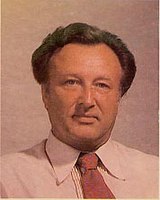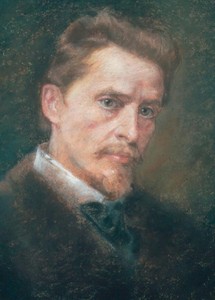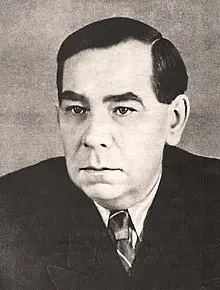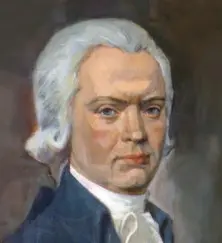
Evgeny Emmanuilovych Zharkovsky (Yevgeny Zharkovsky) |
Yevgeny Zharkovsky
Soviet composer of the older generation, whose best songs have long won well-deserved popularity, Evgeny Emmanuilovich Zharkovsky was born on November 12, 1906 in Kyiv. There, at the age of twenty-one, he graduated from a musical college in the piano class of the famous teacher V. Pukhalsky, and also studied composition with one of the largest composers in Ukraine, B. Lyatoshinsky. In 1929, Zharkovsky arrived in Leningrad and entered the conservatory, in the piano class of Professor L. Nikolaev. Composition classes also continued – with M. Yudin and Yu. Tyulin.
The conservatory was completed in 1934, but as early as 1932, the first songs of Zharkovsky were published. Then he creates the Red Army Rhapsody and the Suite in the old style for piano, and in 1935 – a piano concerto. At this time, the musician fruitfully combines performing and composing activities. He tries himself in different genres – opera, operetta (“Her Hero”, 1940), film music, mass song. In the future, it was this latter area that became the center of his creative interests.
During the Great Patriotic War, Zharkovsky was an officer in the Northern Fleet. For selfless service, he was awarded the Order of the Red Star and military medals. Under the impression of harsh military everyday life, songs dedicated to sailors appear. There are about eighty of them. And after the end of the war, as a result of the creative aspirations of this period, there is a second operetta by Zharkovsky – “The Sea Knot”.
In the post-war years, Zharkovsky continued to combine composing music with active performance, and carried out a large and varied social work.
Among the compositions of Zharkovsky are more than two hundred and fifty songs, including “Farewell, Rocky Mountains”, “Chernomorskaya”, “Orca Swallow”, “Lyrical Waltz”, “Soldiers Are Walking Through the Village”, “Song of Young Michurints”, “Song about cheerful tourist” and others; one-act comic opera “Fire”, Concert Polka for Symphony Orchestra, Sailor Suite for Brass Band, music for six films, operettas “Her Hero” (1940), “Sea Knot” (1945), “My Dear Girl” (1957), “The Bridge is Unknown” (1959), “The Miracle in Orekhovka” (1966), the musical “Pioneer-99” (1969), the musical vaudeville for children “Round Dance of Fairy Tales” (1971), the vocal cycle “Songs about Humanity” (1960), theatrical cantata “Inseparable Friends” (1972), etc.
People’s Artist of the RSFSR (1981). Honored Artist of the RSFSR (1968).
L. Mikheeva, A. Orelovich





